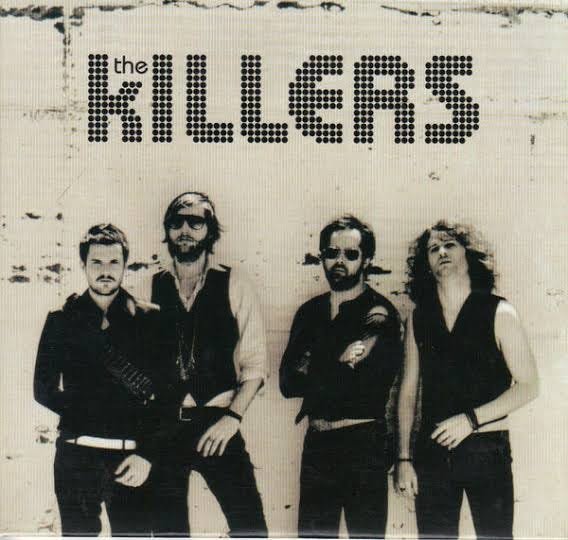Finding Myself in “All These Things That I’ve Done” | by Khalemshang D Mephisto | Sep, 2025

Unlike my previous blogs, this one isn’t about breaking down a song’s structure or its technical brilliance. Instead, it’s about a personal connection—how one track became woven into the story of my own life. This blog, like my journey, is imperfect: it meanders, stumbles, and then finds its footing. And that’s exactly why All These Things That I’ve Done has remained the soundtrack to everything I’ve lived through.
I was fourteen when Hot Fuss came out. I didn’t buy the album right away, but one song found me: All These Things That I’ve Done. At first, it was just another track in my growing collection—catchy, powerful, but nothing more. Only years later, as an adult, did I return to it and discover how deeply it reflected my own life.
Back then, songs like Mr. Brightside or Smile Like You Mean It were everywhere, blasting out of radios and filling school hallways. They were the big anthems of the time. But even if I couldn’t appreciate it fully back then, All These Things That I’ve Done always held a different place in my heart. It felt more intimate, more spiritual, as if it was speaking to me directly rather than to the crowd.
From the opening notes, the song always struck something within me. The reverent stillness felt like being on my knees in a church, weighed down by insecurity and doubt. Then the bass drum kicked in—a surge of energy, a call to rise, run, fight. It was music as a lifeline, a reminder that I didn’t have to stay on my knees forever.
That image wasn’t just metaphor. In college, I was a cliché of irresponsibility—lost in haze, skipping classes, chasing highs instead of purpose. Each escape deepened the spiral, and my greatest failure wasn’t just letting down my parents, but betraying myself.
Yet the song offered a way forward. “When there’s nowhere else to run,” the lyrics insist, “you’ve got to climb.” That became my resolve. I didn’t care if I “broke my hand” along the way; I wanna stand up, I wanna let go, I want to fight my weaknesses. The beat became a heartbeat of determination, reminding me that I wasn’t powerless.
The Changes That Weren’t Quite Changes
I eventually finished college, sober and steady. I thought I had transformed—and in many ways I had—but maturity lagged behind sobriety. I was still impatient, stubborn, too quick to hide behind walls. When I heard the line, “these changes ain’t changing me, this cold-hearted boy I used to be,” it struck like a mirror. I had shed old habits, but not the deeper flaws that held me back.. But beneath that polished surface, something kept seeping through—an invisible stain I couldn’t name yet.
Every effort to rise higher seemed to collapse in my own hands. It was as if whatever I touched eventually withered, not because I lacked will, but because something inside me refused to let go. I didn’t yet know what that flaw was, but its presence was enough to make me realize the change I had claimed was only a mask. The real work had just begun, and my journey toward becoming different had only started to take shape.
There was no bass drop to save me this time. Only time itself, wearing down my sharp edges, would lead me forward. .
Finding Peace
True change came when I embraced adulthood—work, responsibility, patience, empathy. For the first time, I saw my past with clarity. My rebellion wasn’t pure defiance; it was a wounded child acting out, shaped by misunderstandings and distance from my parents. But more than anything, it gave me a new lens to look back at my parents.
Stepping into their shoes taught me the depth of their unconditional love. Even when I didn’t deserve it, even when I pushed it away. That realization humbled me in a way nothing else could. I had spent so much of my youth judging them, only to grow older and realize how much I lacked compared to what they had already given at my age.What once fueled anger now filled me with humility. Letting go of resentment brought me something I had chased for years: peace.
The lyric “I got soul, but I’m not a soldier” became more than just words—it became a chant, a mantra I returned to whenever I needed strength. Its repetition was grounding, like a reminder that I could keep moving, even when life felt overwhelming. My parents were the quiet soldiers, carrying burdens I didn’t see until years later. And if there’s ever been a song that reflects not only my journey but my gratitude for them, it’s this one.
And even now, when I listen to the song, it still fills me with the same sense of joy, gratitude, and peace. It no longer feels like a desperate lifeline, but like an old friend reminding me of how far I’ve come.
Thus the song wasn’t just part of my past. It’s the soundtrack of my becoming. When I look back at the good, the bad, and the ugly, I don’t see regrets anymore—only the stepping stones that led me here. And for that, I am grateful, because my peace was found in all these things that I’ve done.


